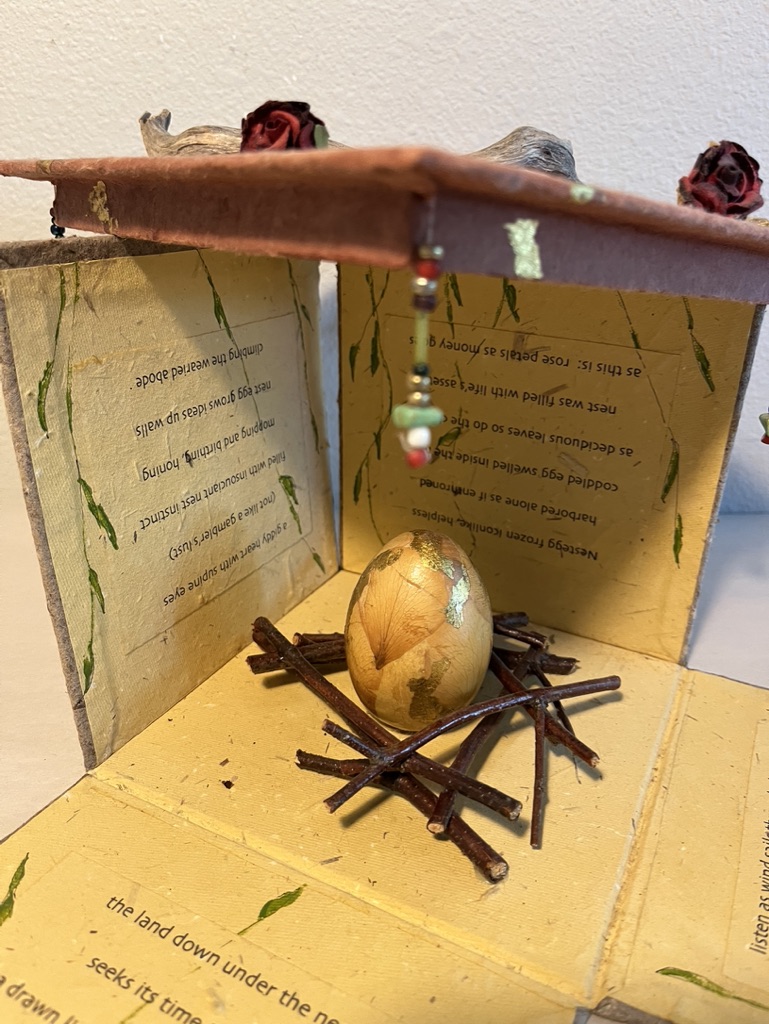 Diane Corson, Nest Egg (opened)
Diane Corson, Nest Egg (opened)
Sad
My daughter tells us our grandson is “sad”;
outside of school, outside of play, when home
he is “sad.”
At school are friends, and games and “work”
that he enjoys; with us there’s food and play
and places that he likes.
At swim he loves the pool, he even likes
to dunk his head, he likes the teachers
and the shower afterward, the warmth.
Home to him is cleaning up and Mom
and Daddy working, and the baby
and then dinner, bedtime, try to sleep.
The word he used is “sad,” and he is good
with words; they flow from him, like
locomotive, triceratops, superhero.
So how do we teach him that in the ocean
even swimmers drown, that though he owns
the word, he does not know sadness yet?
__________________________
Philip Kirsch
Review by Claire Scott
A wonderful story of a bright child on the cusp of losing innocence. I love his facility with language. I think maybe he is five. I like the quotation marks around sad, letting us know he really hasn’t yet experienced sadness. How to help the child breach the gap between speaking a word and knowing the feeling. Does a parent rush in or wait until the child is ready. I think the fourth stanza is weaker than the others. I would like to see a few fresh details. But bravo for a great poem!
Review by Jared Pearce
I’ve been reading how depression was experiential, then attitudinal, then chemical, and how it’s reversing course again. And I’ve been working with a young man who is sad. And I like how the grandson has activity and I worry when he says he’s sad. And I agree with the speaker’s final, possibly rhetorical, question. But the tension between the answer implied by the final question and the pattern the grandson presents is too worrisome for me, too scary, too tricky. As a poem, I like that tension. As a parent of sad children, I want to weep.
